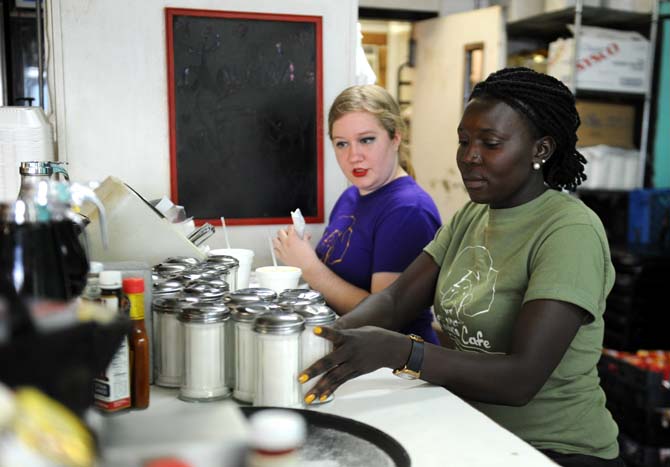You don’t need me to tell you about Louie’s Cafe. You know the smell, you know the chili cheese hash browns, you know the constant rotation of waitresses, all of them your best friend.
Regrouping at Louie’s after a long night is a quintessential part of the LSU experience, equal to complaining about Riverside Towing or taking midnight calls from acquaintances you barely remember who need a ride home.
But as much as Louie’s is an LSU and Baton Rouge tradition, it’s part of a larger group of restaurants of its type that tie the South to the rest of the nation.
These places are all over the country, serving the same greasy food and hospitality to the same groups of people. Amanda’s, a tiny diner in my hometown in Rhode Island, opens at 4 a.m. to serve truckers and anyone else unlucky enough to be passing through in the early hours.
They pepper pit-stop towns along interstates all across the country and sit in the heart of its biggest cities. And wherever you consider Baton Rouge to fall on that spectrum, Louie’s is a contribution to the national diner conversation.
Diners like Louie’s wouldn’t be absolutely everywhere in this country if they didn’t say something about us as a people.
The United States has, for a very long time, been a nation on the move. Since Thomas Jefferson made the purchase that gave this state its name, Americans have expanded into the open space, always looking for a place to settle and call their own.
We define ourselves by our movements and the new places we adopt, whether it’s where we were born, the college we pay out-of-state tuition to attend or the foreign country we study in and dream about returning to. We are where we go.
That’s why diners like Louie’s and Amanda’s popped up all over the country in the ’50s. We were building interstates, packing up and moving to newly open regions of the country, and wherever we came from, we brought our neon signs and recipes for bacon and eggs with us.
Every diner, no matter what it serves or what accents the fry cooks speak with, is basically the same. In any state, the diner you’re in will remind you of the one down the street from where you grew up.
For someone in a new state, a new city, a new country, it’s comforting to know that wherever you end up, there will be a place where a smiling waitress will serve you a cheap cup of coffee.
From all this, you might think I’m worried about Louie’s moving to a new building. It’s easy to think that a move to the former Wendy’s will symbolize a new, sterile corporate identity.
But I don’t think that’s coming. For all that the Louie’s management needs, like new facilities, more space and more parking — and God knows it needs more parking — we need Louie’s to keep being what it already is.
We need that place where they don’t care if you’re coming back from Sunday morning mass or leaning your head on the table because the sunlight is about to make your head split open, and for Baton Rouge and LSU, that place is Louie’s.
When I first arrived in town, I asked someone on the sidewalk by the Quad where I could get a decent breakfast.
Without hesitation, the guy referred me to Louie’s.
“It’s kind of dirty,” he said, “but you’ll like it.”
The guy turned out to be right. Louie’s is kind of dirty, kind of
grungy, and the smell is famous for a reason. But that’s just the way we like it, and I don’t think it’s going to change any time soon.
Good luck, Louie’s. Stay dirty.
Gordon Brillon is a 20-year-old mass communication junior from Lincoln, R.I.
Opinion: Louie’s part of an American tradition
March 30, 2014
Waitress Dawn Simonson (left) sits with co-worker Jessica Poni (right) on Sunday, March 23, 2014 at Louie’s Café.
More to Discover










